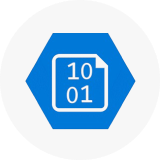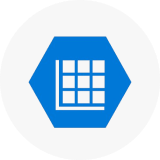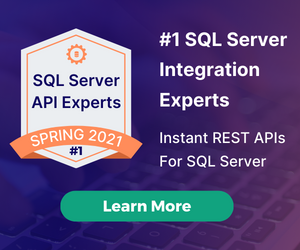The Best On-Premises API Management Software
by Terence Bennett • November 5, 2024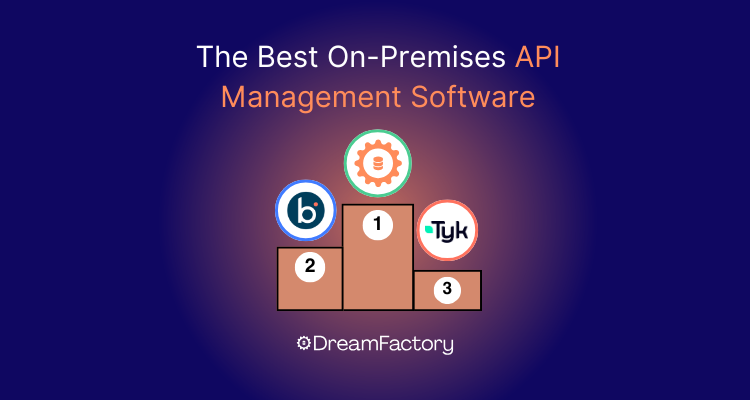
API management software plays a crucial role in ensuring the smooth operation and governance of APIs. When it comes to API management, one option is to consider is selecting the best on-premises API management software. On-premise API management software is a solution installed and hosted within a company's internal infrastructure, providing tools for creating, securing, managing, and analyzing APIs without relying on external cloud services.
Many businesses use on-premises and cloud-based solutions side by side. As long as you have reliable APIs that allow communication between diverse applications, you can add diverse solutions to your tech stack.
Here's the key things to know about The Best On-Premises API Management Software:
- On-premises API management software offers several benefits that can help businesses thrive.
- Advantages of choosing on-premises software include faster speeds and better uptime, even during high usage.
- On-premises software provides more customization options, allowing businesses to tailor the solution to their specific needs.
- Improved data security is another advantage, as all information and business processes remain onsite, enhancing regulatory compliance.
- On-premises software allows for disconnecting databases from the network, ensuring heightened security through cold storage access restrictions.
What is On-Premises API Management Software?
On-premises software, in the context of API management, refers to applications that are installed and operated within an organization's own infrastructure. Unlike cloud-based solutions, on-premises software gives businesses complete control over the deployment, configuration, and management of the software within their own environment.
Opting for the best on-premises API management software offers several advantages, with enhanced data control and security being paramount. By keeping the software within their own infrastructure, organizations gain a higher level of control over their sensitive data, ensuring compliance with industry regulations and internal security policies. This level of control instills confidence in businesses handling highly sensitive data or having strict data privacy requirements.
The best on-premises API management software allows organizations to customize and tailor the solution according to their specific needs. This flexibility enables businesses to align the software seamlessly with their existing infrastructure, workflows, and security measures, resulting in optimized integration and efficient operation.
How to Evaluate the Best On-Premises API Management Platforms
Selecting the best on-premises API management platform requires the sometimes painstaking evaluation of various factors to ensure it aligns with your organization's specific needs. Here are some key considerations to help you make an informed decision:
1. Scalability and Performance: Assess the platform's scalability to handle your current and future API traffic requirements. Consider the performance metrics, such as throughput and response times, to ensure it can handle the expected workload without compromising efficiency.
2. Customization and Flexibility: Look for a platform that offers extensive customization options to fit your existing infrastructure and workflows. It should allow you to tailor the solution to your specific requirements and integrate seamlessly with your technology stack.
3. Security and Compliance: Data security is crucial when managing APIs. Evaluate the platform's security features, such as authentication, authorization, encryption, and threat protection mechanisms. Ensure it supports industry-standard security protocols and compliance requirements relevant to your industry.
4. Management and Monitoring Capabilities: Consider the platform's management and monitoring features. It should provide a centralized dashboard for easy API management, analytics, and reporting. Look for features like rate limiting, caching, and error handling to effectively manage and monitor your APIs.
5. Developer Portal and Documentation: A user-friendly developer portal and comprehensive documentation are essential for a successful API program. Evaluate the platform's developer portal to ensure it offers intuitive documentation, interactive API documentation, code samples, and sandbox environments to facilitate smooth developer onboarding and API consumption.
6. Integration and Interoperability: Check the platform's compatibility with your existing systems, databases, and protocols. It should support the technologies you use, such as REST, SOAP, or GraphQL. Additionally, evaluate its ability to integrate with other tools, frameworks, and third-party services critical to your ecosystem.
7. Vendor Support and Community: Evaluate the vendor's support offerings, including technical assistance, updates, and maintenance. A responsive support team and an active user community can provide valuable resources and assistance when facing challenges or seeking best practices.
8. Total Cost of Ownership (TCO): Consider the upfront and ongoing costs associated with the platform. Evaluate the licensing model, implementation costs, hardware requirements, and ongoing maintenance expenses. Ensure that the platform's benefits outweigh its costs and fit within your budget.
The Best On-Premises Software Options for Businesses
Now that you know some of the most popular types of on-premises software, explore the following options to find solutions that fit your business’s needs.
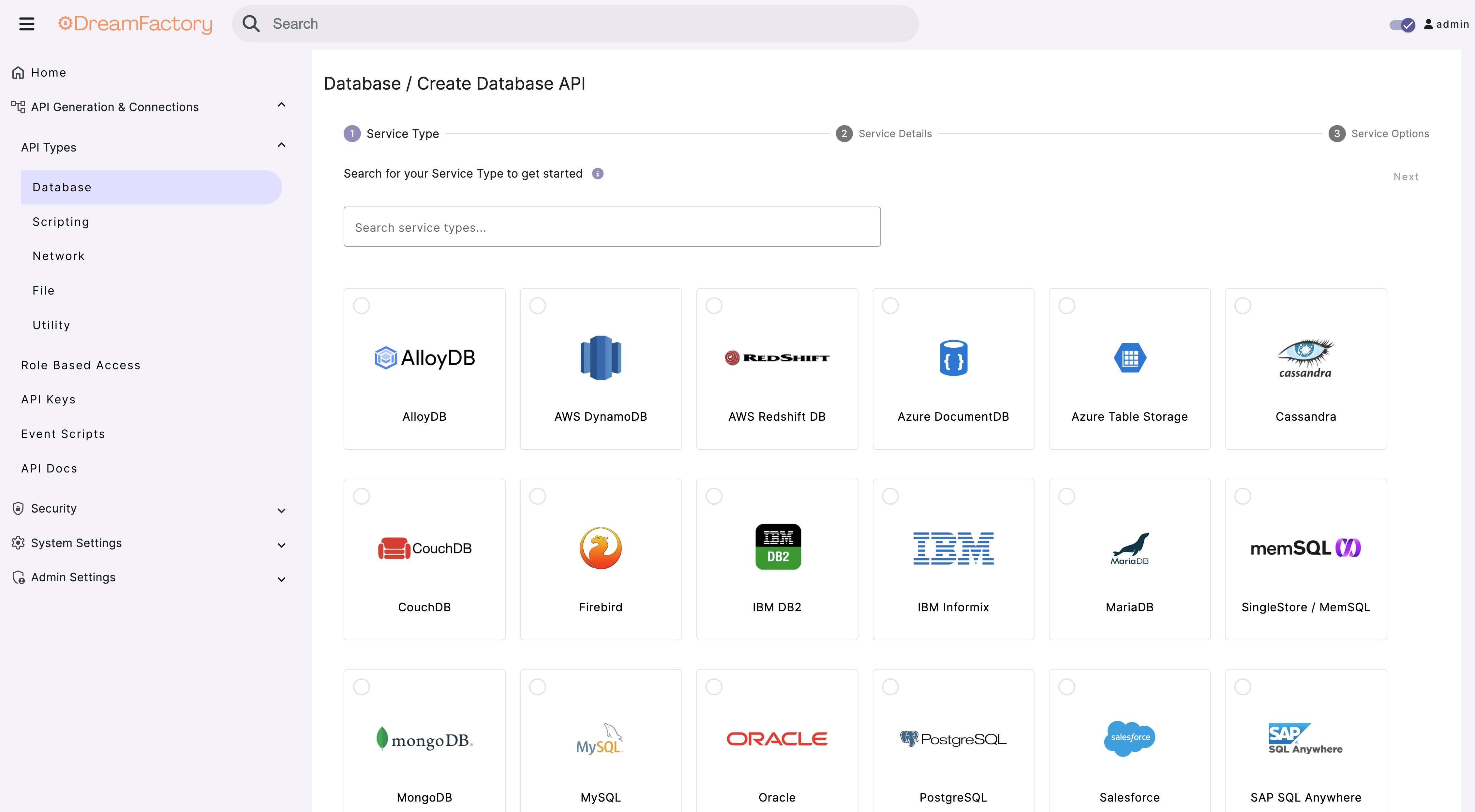
DreamFactory
As you add more applications to your software ecosystem, you need to find a reliable way for them to share information. Otherwise, you force them to operate in vacuums, which ultimately leads to more work and delays.
DreamFactory is a low-code solution for generating, publishing, and managing the APIs apps you need for communication. The platform lets you take control of diverse applications and data sources so you can streamline workflows.
Server-side scripting makes it relatively easy to add business logic to your APIs. DreamFactory supports NodeJS, V8JS, PHP, and Python. If you don't have much experience with coding, you can always adjust variables in the existing code to match your business needs.
Other benefits of DreamFactory include options for:
- Combining unrelated databases without writing code.
- Migrating applications through development, test, and production environments.
- Setting API limits to control access and prevent attacks.
- Turning SOAP into REST APIs.
Even when you decide your company benefits most from on-premises software, you still need to make sure all of your solutions can communicate with each other. You might also need a way to connect your on-premises software to SaaS applications to take advantage of cloud computing's advantages.
Boomi
Boomi is a versatile integration platform that offers on-premise, cloud, and hybrid deployment options. It provides low-code/no-code connectors for seamless app and system integration. Boomi caters to users with varying coding expertise, allowing greater customization. It supports limited data transformation automation within the platform.
Pros:
- Offers low-code/no-code connectors for easy integration.
- Provides customization options for users with coding expertise.
- Allows open-source sharing of user-generated maps and connectors.
- Supports API and EDI connections for automating interfaces.
- Provides support for GDPR and data privacy regulatory compliance.
Cons:
- Limited data transformation automation capabilities.
- Complex configurations may require advanced technical knowledge.
- Can be challenging to set up and maintain for novice users.
- Some users may find the learning curve steep.
- Support and documentation can be improved.
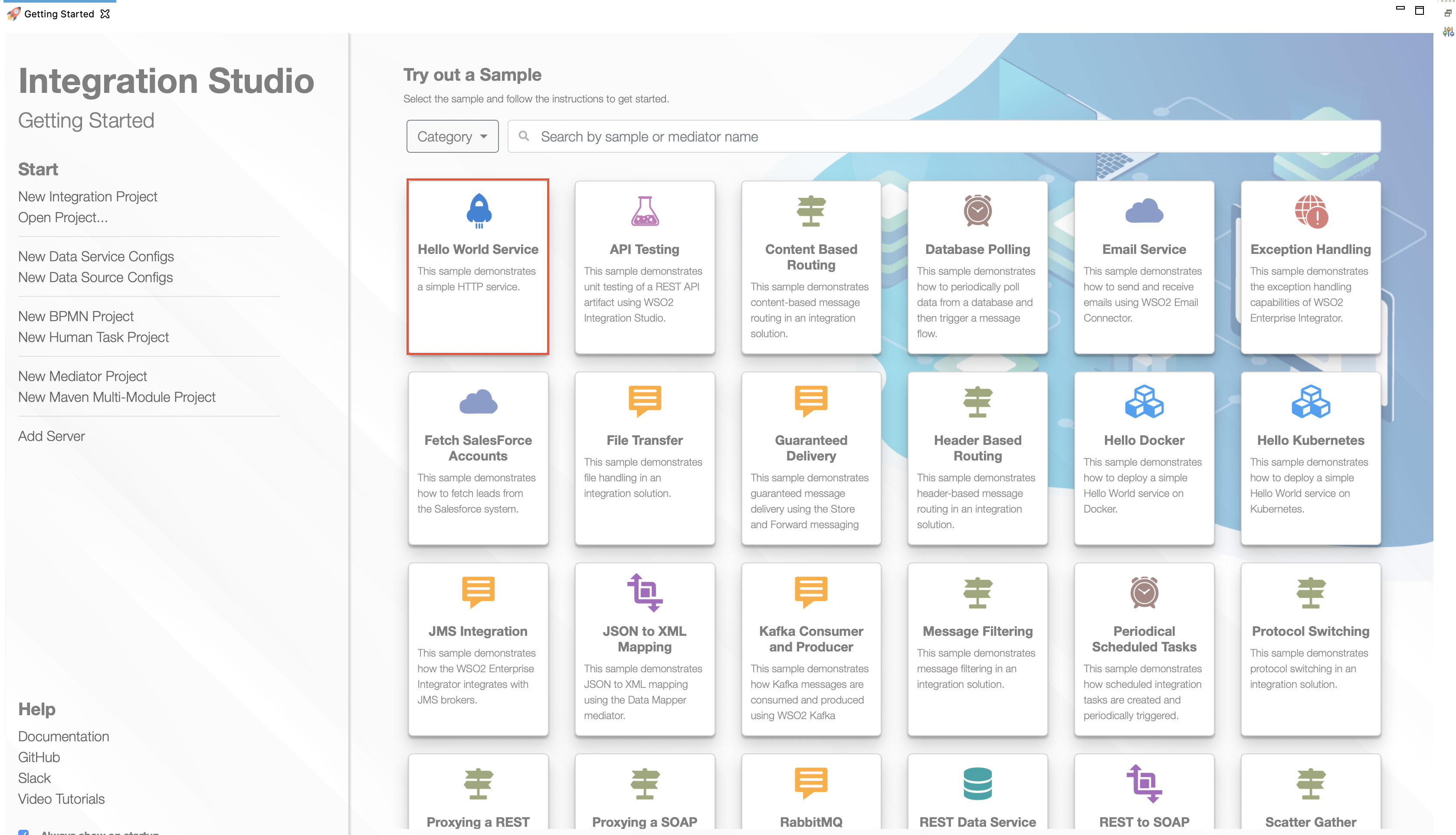
WSO2
WSO2 is a comprehensive platform that enables building, integrating, and exposing digital services as managed APIs in various deployment architectures. It supports cloud, on-premises, and hybrid environments, making it suitable for driving digital transformation strategies.
Pros:
- Offers a comprehensive set of features for API development and management.
- Supports various deployment options to suit different infrastructure needs.
- Provides integration with industry-standard authorization flows.
- Simplifies the integration process with visual tools and commands.
Cons:
- Complex configurations may require advanced technical knowledge.
- Initial setup and learning curve may be challenging for new users.
- Advanced customization may require expertise in WSO2's technology stack.
- Support and documentation could be improved.

SAP Integration Suite
SAP Integration Suite, formerly known as SAP Cloud Platform Integration Suite, is a robust integration platform as a service (iPaaS). It enables users to seamlessly integrate both on-premise and cloud-based applications and processes using a range of tools and prebuilt content managed by SAP.
Pros:
- Comprehensive integration platform for on-premises and cloud integration.
- Access to a wide range of tools and prebuilt content from SAP.
- Scalable solution to accommodate future integration needs.
- Enables connectivity and contextualization of experiences across the enterprise.
- Supports enhanced engagement with customers, partners, and employees.
Cons:
- May require specific expertise in SAP technologies for advanced customization.
- Initial setup and configuration can be complex for new users.
- Ongoing maintenance and support may require dedicated resources.
- Pricing structure may not be suitable for all budgets.
- Integration with non-SAP systems may require additional configuration and effort.'

Tyk
Tyk is a fast and scalable open-source API gateway that offers a range of features to support API management. It includes analytics, a developer portal, a dashboard, and is GraphQL ready. With Tyk, you can choose from three flavors to best suit your architecture and governance needs. It provides options for full cloud, on-premises, and a unique hybrid model.
Pros:
- Fast and scalable API Gateway for efficient API management.
- Comprehensive set of features, including analytics and developer portal.
- Flexible deployment options to match architecture and governance requirements.
- Enhanced API capabilities with GraphQL support.
- Enables secure and stable API-led businesses.
Cons:
- Advanced customization and configuration may require technical expertise.
- Initial setup and configuration can be complex for new users.
- Limited documentation and community support compared to some commercial solutions.
- Maintenance and support may require dedicated resources.
- Integration with certain systems or technologies may require additional effort.
Advanced Functionality and Flexibility with On-Premises API Management Solutions
On-premises API management solutions give you comprehensive functionality for managing, securing, and scaling APIs. By keeping APIs onsite, these solutions allow precise control over API design and backend operations, ensuring that sensitive data and business logic remain protected. With full customization capabilities, teams can tailor the API environment to align with operational and compliance requirements.
When built on a microservices architecture, on-premises solutions support modular, independent service management, allowing for seamless updates, scaling, and fault isolation. An API gateway within this setup routes traffic effectively across services, while API management tools handle aspects like traffic control, authentication, and monitoring, enhancing system resilience and scalability.
Efficient Discovery and Integration with API Management Tools
On-premises API management solutions improve API discovery and documentation, improving visibility across internal and third-party APIs. With centralized tools, developers can discover available APIs, reducing redundancy and fostering reuse across services. The integrated developer portals and detailed documentation further simplify integration efforts.
By centralizing API management, these tools offer end-to-end control over the API lifecycle—from design to decommissioning—enabling backend teams to optimize security, access control, and performance directly within their infrastructure. This on-premises setup is ideal for organizations prioritizing security, compliance, and control over data and application flow.
Benefits of the Best On-Premises API Management Software
With so many companies opting for cloud-based software solutions, why would you prefer on-premises software? On-premises software isn’t right for everyone, but it does offer a lot of advantages that help some businesses thrive.
Potential benefits of choosing on-premises software include:
- Faster speeds and better uptime, even when a lot of people use the software at the same time.
- More customization options.
- Improved data security that keeps all your information and business processes onsite instead of in the cloud.
- Better regulatory compliance because you have more control over your data.
- Options to disconnect databases from the network, putting them in cold storage where no one can access information without permission.
While these benefits don’t matter to everyone, they can significantly affect businesses concerned about efficiency and security.
Start Connecting Your On-Premises and Cloud-Based Applications
DreamFactory makes it easier for you to connect all your applications and data sources. Use it to create and manage APIs without compromising your network's security.
Start your free 14-day trial with DreamFactory to see how much more effective your on-premises software becomes when you have a low-code way to create and manage APIs.
Frequently Asked Questions: On-Premises API Management
What is the difference between on-premises and cloud-based API management software?
On-premises API management software is installed and operated within an organization's own infrastructure, providing enhanced data control and customization. In contrast, cloud-based solutions are hosted and managed by a third-party provider, offering scalability and ease of deployment without the need for dedicated infrastructure.
What are the benefits of choosing on-premises API management software?
On-premises software offers increased data control, enhanced security, and customization options. It is suitable for businesses with strict data privacy requirements or specific infrastructure needs. It provides complete control over the API management environment, allowing organizations to align it with existing systems and workflows.
What are the potential drawbacks of on-premises API management software?
On-premises software requires upfront investments in infrastructure, hardware, and skilled IT personnel. It involves ongoing maintenance and support, which can be resource-intensive. Additionally, setting up and configuring the software may be complex for non-technical users. Organizations must also ensure the availability, scalability, and performance of the software themselves.
Can on-premises API management software be integrated with cloud services?
Yes, on-premises API management software can be integrated with cloud services through hybrid deployment models. This allows organizations to leverage the benefits of both on-premises and cloud environments, combining data control and customization with the scalability and flexibility of cloud services.
How does API management software support secure integration and data privacy?
API management software includes features such as authentication, authorization, and encryption to ensure secure integration between systems. It supports industry-standard protocols like OAuth and OpenID Connect for secure access control. Additionally, organizations can implement data privacy measures to comply with regulations such as GDPR.
What factors should I consider when choosing on-premises API management software?
When selecting on-premises API management software, consider factors such as scalability, customization options, security features, ease of integration with existing systems, support and maintenance requirements, and the vendor's track record and reputation in the industry.
Terence Bennett, CEO of DreamFactory, has a wealth of experience in government IT systems and Google Cloud. His impressive background includes being a former U.S. Navy Intelligence Officer and a former member of Google's Red Team. Prior to becoming CEO, he served as COO at DreamFactory Software.




















